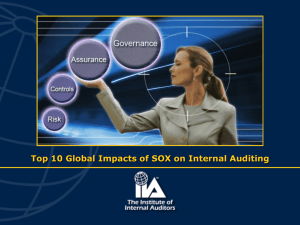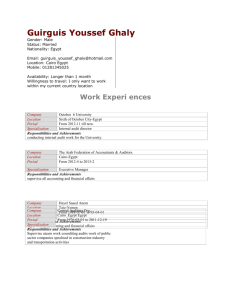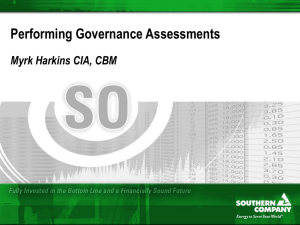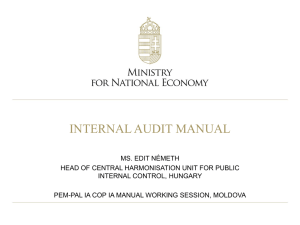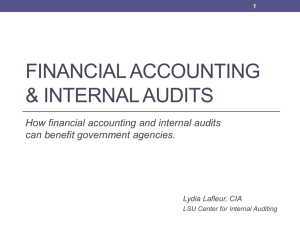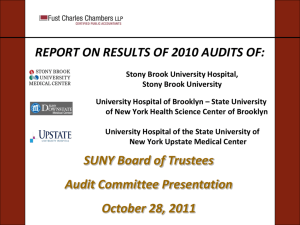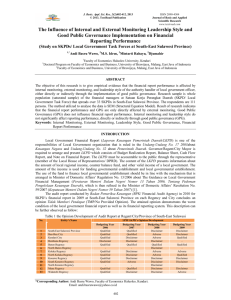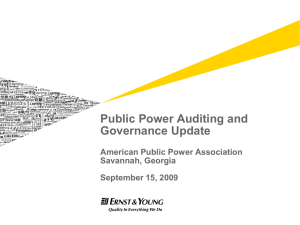AF3S02 Advanced Financial Reporting
advertisement
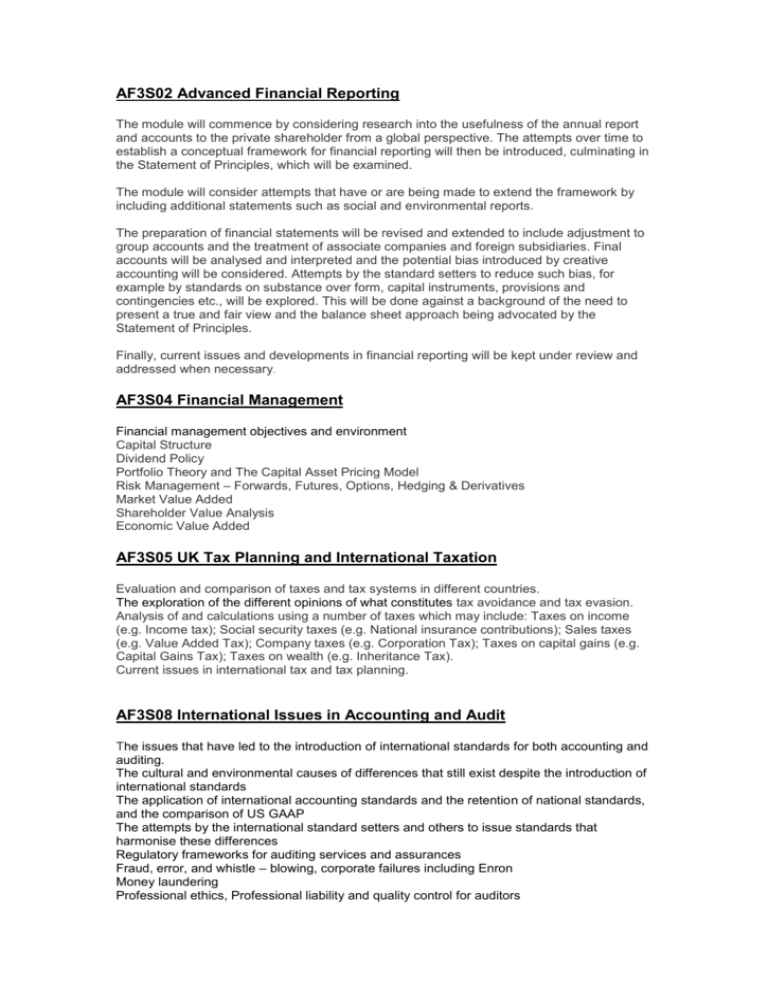
AF3S02 Advanced Financial Reporting The module will commence by considering research into the usefulness of the annual report and accounts to the private shareholder from a global perspective. The attempts over time to establish a conceptual framework for financial reporting will then be introduced, culminating in the Statement of Principles, which will be examined. The module will consider attempts that have or are being made to extend the framework by including additional statements such as social and environmental reports. The preparation of financial statements will be revised and extended to include adjustment to group accounts and the treatment of associate companies and foreign subsidiaries. Final accounts will be analysed and interpreted and the potential bias introduced by creative accounting will be considered. Attempts by the standard setters to reduce such bias, for example by standards on substance over form, capital instruments, provisions and contingencies etc., will be explored. This will be done against a background of the need to present a true and fair view and the balance sheet approach being advocated by the Statement of Principles. Finally, current issues and developments in financial reporting will be kept under review and addressed when necessary. AF3S04 Financial Management Financial management objectives and environment Capital Structure Dividend Policy Portfolio Theory and The Capital Asset Pricing Model Risk Management – Forwards, Futures, Options, Hedging & Derivatives Market Value Added Shareholder Value Analysis Economic Value Added AF3S05 UK Tax Planning and International Taxation Evaluation and comparison of taxes and tax systems in different countries. The exploration of the different opinions of what constitutes tax avoidance and tax evasion. Analysis of and calculations using a number of taxes which may include: Taxes on income (e.g. Income tax); Social security taxes (e.g. National insurance contributions); Sales taxes (e.g. Value Added Tax); Company taxes (e.g. Corporation Tax); Taxes on capital gains (e.g. Capital Gains Tax); Taxes on wealth (e.g. Inheritance Tax). Current issues in international tax and tax planning. AF3S08 International Issues in Accounting and Audit The issues that have led to the introduction of international standards for both accounting and auditing. The cultural and environmental causes of differences that still exist despite the introduction of international standards The application of international accounting standards and the retention of national standards, and the comparison of US GAAP The attempts by the international standard setters and others to issue standards that harmonise these differences Regulatory frameworks for auditing services and assurances Fraud, error, and whistle – blowing, corporate failures including Enron Money laundering Professional ethics, Professional liability and quality control for auditors Information technology and the auditor Transnational auditing and the role of the OECD and governments Global issues affecting accounting and auditing, the political and social environment, and cross boundary activities for corporations AF3S14 Strategic Performance Management The history of management accounting and its influence/relevance. (Kaplanrelevance lost and regained) Introduction to strategic management accounting- effects of changes in business structure, environment and world economics (Impact of JITbackflush costing, ABC, Target costing, Life cycle costing) Decentralised organisations and their implications for management accounting. (divisional performance measurement, long-term/short term, transfer pricing issues) Performance measurement in public and private sectors and the influence of intra-organisational transfer pricing. (balanced scorecard, value chain) The developing and future role of management accounting and the influence of information technology (Information as a resource, throughput accounting, Models underlying management control and decision making – control theory; contingency theory; Ethical and empowerment issues in management accounting (budgeting theory, behavioural issues, beyond budgeting) The influence of, and implications for, management accounting of contemporary approaches to organisational, strategic and cost management theory AF3S16 Global Governance, Risk and Ethics The definition of corporate governance and the scope of governance. The development of codes of best practice for governance Agency theories linked to governance issues. The corporate board and its associated committees Different approaches to corporate governance Voluntary codes as opposed to mandatory requirements of governance Risk management and assessment including the role of the auditor Categories of risk, identification, assessment and measurement of risk Methods of controlling and avoiding risk Professional Ethics Ethical theories and social responsibility Conflicts of interest and the consequences of unethical behaviour Environmental issues in the conduct of business and of social behaviour AF3S17 Advanced Management Accounting Short term decision making (make or buy, special orders, throughput accounting, limiting factors), Long term decision making (investment appraisal, strategic decisions, life cycle costing) Forecasting and planning (activity based budgeting, learning curve, time series) Information for Control ( variance analysis, customer profitability analysis) Risk and uncertainty (probabilities, sensitivity analysis) The pricing decision (cost based and demand-based pricing, the price/demand relationship, transfer pricing) AF3S18 Cases in Auditing The case studies will cover various aspects of both external and internal auditing Audit Planning Audit management Audit risk and the use of IT Audit role in risk management Audit relationship with Audit Committees External audit reporting on financial statement and corporate governance Internal audit management and risk assessment Audit assurance Audit in the public sector Private and public sector auditing similarities and differences International auditing standards and their role in ensuring audit quality Auditor liability, fraud detection and money laundering legislation Forensic Accounting Fundamentals of fraud auditing and forensic accounting. The business as a victim- fraud and corruption schemes Risk assessment, fraud prevention and control The investigative process. Analysis tools for investigation. The Forensic Accountant as expert witness. Gathering evidence and proving cases through documentary evidence. Documenting and presenting evidence
